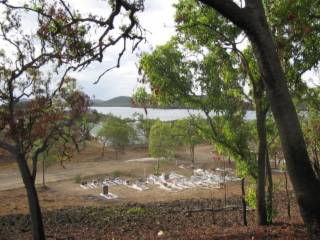I got some key learnings out of Thursday's experience of being profiled teaching Douglas's class.
1.
It is imperative that we treat teachers with the utmost respect.
Leave the sheets in a sealed envelope
immediately after the profile session, straight after photocopying them. Be sure that you pre-arrange a reflection session, preferably the day following the profile.
It is so important that we don't take the attitude, "I am an expert on teaching (or behaviour management or whatever) and I am watching you and will let you know how you did".
We are providing a service. Teachers are doing us a favour by allowing us into their classrooms. This is a sacred trust. Honour it and honour them. If we don't get that right, there is no point in doing this at all - no matter how "correct" we get the details. The feedback we give teachers needs to be respectful, honest and meaningful
in their terms.
This comes back to Susan's point about having a vision. That's my vision - that we respect and support teachers. We need to convey that clearly and right from the start - or they are not going to want to know about it.
It's also of great importance that our workloads accommodate our ability to do this. If we don't have the time and the cognitive space to do it right, we can't do it. This will definitely require planning and may require negotiation about workloads.
2.
It's easy to get videos made.
It wasn't perfect. I am sure to cringe when I see it. I didn't fully explain to Ian the purpose of the video and so he may have got too crafty with his shooting.
That doesn't matter. The important thing is, the video got made.
We've made a start. The purpose was not to capture an exemplary lesson - it was to start to build a bank of resources that can be used for training - ie observation practice. I've done it - you can do it too. And we can only get better.
3. Another point that Susan made in conversation with me: in adult learning situations, it is
not only the teacher who is responsible for behaviour management. I agree with Susan, and this is something we need to think about more.
A mature Torres Strait Islander man directed another student at one stage in the lesson to do something and this was marked as an example of 'disruptive behaviour' on the sheet. In my experience, and in my opinion, that man has more authority over other (younger) Torres Strait Islander students in the classroom or elsewhere, than I have. This (meaning the broader issue, not so much the specific example) needs a lot of further discussion.
4. The above point relates to a broader issue again. I'm much more interested in being "a guide on the side" than "a sage on the stage". Yes we do need to develop skills for sustaining positive and harmonious relations in learning situations - but I don't see the teacher's role as 'maintaining discipline'. Again, a topic for more discussion.

